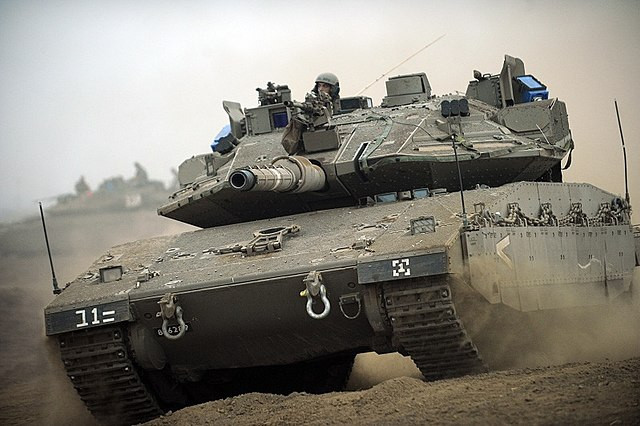Israel and Hezbollah are on the brink of a potentially catastrophic conflict, as recent developments have heightened the risk of war. Israeli officials, including former war cabinet member Benny Gantz, have issued stark warnings, indicating that Israel is prepared to take decisive action against Hezbollah.
"We can plunge Lebanon completely into the dark and take apart Hezbollah's power in days," Gantz declared at a conference at Reichman University in Herzliya, Israel.
The threat of plunging Lebanon into darkness is not an idle one. Lebanon's power grid is already severely compromised due to decades of mismanagement and economic collapse, making it highly vulnerable to targeted airstrikes. However, dismantling Hezbollah's military capabilities is a far more daunting task. Since the inconclusive 2006 war, both Israel and Hezbollah have been preparing for a rematch. Hezbollah has amassed an arsenal of at least 150,000 missiles and rockets, and Israeli officials have been taken aback by the sophistication of the group's recent attacks.
Hezbollah has demonstrated its capability to carry out systematic and precise strikes on Israeli surveillance outposts, shoot down advanced Israeli drones, and target Israel's Iron Dome batteries. The publication of drone footage showing sensitive infrastructure in Haifa has further alarmed Israeli authorities. In addition to its weaponry, Hezbollah boasts a disciplined and experienced fighting force, many of whom gained combat experience in the Syrian civil war.
The strategic depth that Hezbollah enjoys, with support from friendly regimes in Syria and Iraq and direct access to Iran, adds to the complexity of any potential conflict. Israel has routinely struck targets in Syria believed to be involved in transferring weapons to Hezbollah, but these efforts have been only partially successful. A full-scale war would likely result in significant casualties and destruction on both sides.
A report from Reichman University titled "Fire and Blood: The Chilling Reality Facing Israel in a War with Hezbollah" paints a grim picture. It suggests that Hezbollah could fire 2,500 to 3,000 rockets and missiles daily, targeting Israeli military sites and densely populated cities. This would far exceed the rate of missile fire seen during the 2006 war.
The shifting strategic balance in the Middle East further complicates the situation. Israel's adversaries are no longer just corrupt and incompetent Arab regimes but a network of non-state actors, including Hezbollah, Hamas, Islamic Jihad, the Houthis, and militias in Iraq and Syria, all supported by Iran. The involvement of these groups and Iran itself in a conflict could have severe regional and global repercussions.
Iran's role cannot be underestimated. Traditionally, Tehran has allowed its proxies to conduct military operations, but it has shown a willingness to retaliate directly when provoked. An attack on Hezbollah by Israel could prompt Iran to mobilize its allies and target U.S. interests in the region. The potential for Iran to block the Strait of Hormuz, a critical chokepoint for global oil supplies, is a particularly alarming scenario.
The international community is acutely aware of the potential for escalation. UN humanitarian affairs chief Martin Griffiths described Lebanon as "the flashpoint beyond all flashpoints" and warned that a war involving Lebanon could be "potentially apocalyptic." U.S. Defense Secretary Lloyd Austin has cautioned that another war with Hezbollah could have "terrible consequences for the Middle East" and has urged for a diplomatic solution.
Despite the calls for de-escalation, the rhetoric from both sides remains heated. Israeli Defense Minister Yoav Gallant has stated that while Israel does not seek war, it is prepared for all scenarios. Hezbollah leader Hassan Nasrallah has also threatened a war with "no restraint and no rules and no ceilings" if Israel launches a major offensive against Lebanon.
The situation on the Lebanon-Israel border has been volatile since the conflict in Gaza erupted in October, with daily exchanges of fire. The heightened tensions and increasingly bellicose rhetoric suggest that both sides are bracing for the possibility of a full-scale war, which could have devastating consequences for the region.




